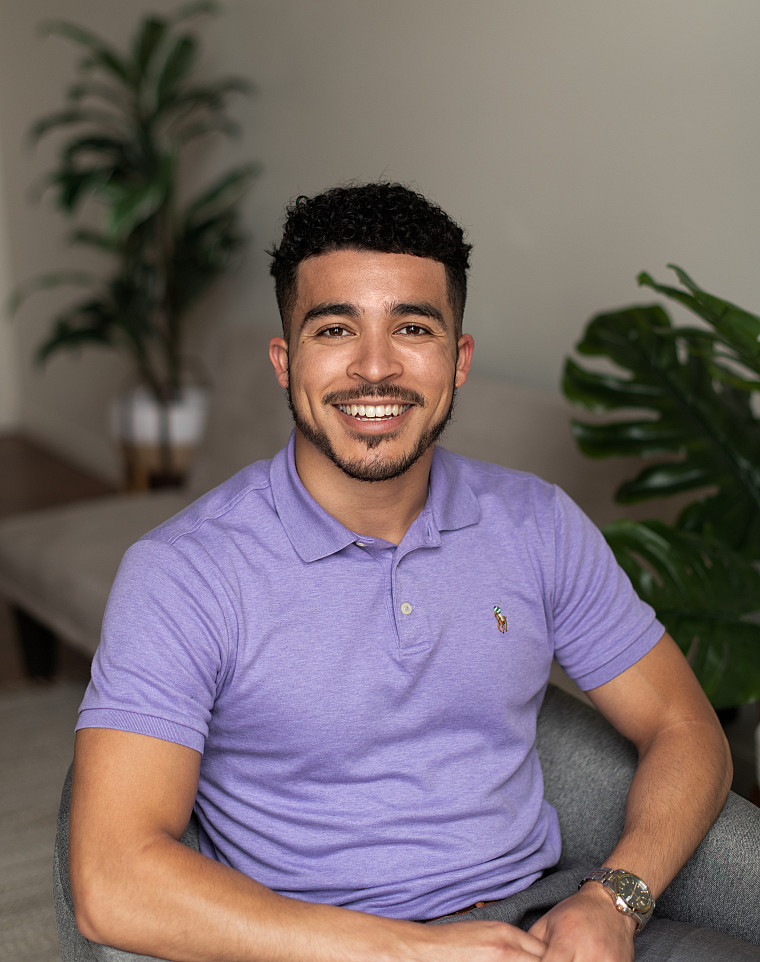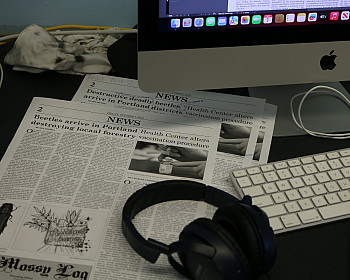Curtis Shirey

Pronouns
Degree and Class Year
Hometown
Current City
Major
Extracurriculars
Job Title, Organization
What three words would you use to describe L&C?
Engaging—Lewis & Clark is an intellectually vibrant community with sharp faculty and a student body that is deeply curious. Conversations always felt meaningful, whether in class or outside of it, with people eager to discuss a wide range of issues.
Challenging—My time at Lewis & Clark was academically rigorous, especially compared to the experiences of my peers at other schools. Also balancing multiple sports while keeping up with demanding coursework was no small task.
Distinctive—With around 2,000 students, Lewis & Clark existed in its own unique bubble—and has a culture that is very different than anything I have experienced since. That aspect of L&C helped me learn how to engage with unfamiliar ways of thinking and appreciate how they can broaden your understanding of the world.
What made you want to come to Lewis & Clark?
At the time, my main motivation was the opportunity to play football at the collegiate level, and Lewis & Clark was one of the schools that gave me that chance. Beyond that, being from Sacramento, Portland offered the perfect balance—far enough to give me space from home but still close enough to stay connected. What really set L&C apart, though, was how well it balanced athletics and academics. The expectation was that student-athletes were held to the same academic standards as everyone else, and that alignment made it the right fit for me.
What have you been doing since graduation?
I am very passionate about working to improve systems, which led me to create Aspasia Wealth Management, where we focus on expanding financial services to be more inclusive of those who have historically been excluded. Beyond my work in financial services, I also engage with organizations dedicated to systemic change. I serve as an Officer for All Hands Raised, a Portland-based organization that advances educational equity by working across schools, nonprofits, and the community. I also sit on the Board of YMCA Columbia-Willamette, which provides youth development and community programs across the region. Additionally, I am the president of the Portland Rotary Club, one of the oldest and largest rotary clubs in the country, where we focus on service projects and leadership development to make a lasting local and global impact.
How did Lewis & Clark prepare you for your career?
I mentioned earlier the challenge of balancing athletics and academics, and I really can’t overstate how valuable that experience was for me. Through athletics, I learned accountability—having clear roles and responsibilities, being held to a standard, and working within a team made up of people from many different backgrounds. Time management was another critical skill that came out of that experience, one that has served me well in both my career and volunteer work.
Academically, a lot of my coursework focused on thinking probabilistically and engaging in empirical research. Those skills continue to help me every day, especially when I’m responsible for making complex decisions. The ability to analyze information, weigh outcomes, and make informed choices is something I can directly trace back to my time at Lewis & Clark.
Additionally, as a person of color, attending a predominantly white institution came with challenges, but it also reflected the reality of many professional environments. Learning to navigate that space, build relationships, and advocate for myself was an important part of my development. It helped me build confidence and resilience, which have been invaluable in my career and leadership roles.
What would you say is the most important thing you learned at Lewis & Clark?
Learning to think probabilistically is the most important skill I took away from Lewis & Clark. It influences every aspect of my life and is what I credit for many of my accomplishments. Understanding how to assess uncertainty, weigh different possible outcomes, and make informed decisions is a skill that isn’t innate—it has to be learned. I’m incredibly grateful to professors like Todd Watson, Brian Detweiler, and many others who ensured I developed that ability. Their guidance shaped how I approach challenges, both professionally and personally.
How do you stay connected to Lewis & Clark as an alum?
I’ve given talks to psychology students about how their degrees can be valuable in the professional world. I enjoy helping students see the real-world value of what they’re learning.
I also reach out to some of my former psychology professors for their opinions on data sets from various projects I’m working on. Data is everywhere, and their insights help me interpret information and make better decisions. It’s a great way to stay engaged with the academic side of psychology while applying it in a professional setting.
What did you like or find most interesting about your majors?
I was a double major in psychology and rhetoric and media studies, and I found it fascinating how much overlap there was between the two. One of the most interesting things I learned is how humans, in many ways, behave like pack animals—our decisions are heavily influenced by our environment and the behavior of those around us. We like to think of ourselves as independent thinkers, but in reality, social context and group dynamics play a much bigger role in shaping our choices than we often realize.
What was your favorite class? How did it expand your knowledge?
One of my favorite classes was Rhetorical Theory with Professor Kundai Chirindo. His perspective was that the entire history of Western thought is essentially a search for the best way to discover “Big T” Truth—truth in its transcendent, absolute form. He broke down the distinction between that “Big T” Truth and “small t” truth, which is more situational and tied to kairos, the idea of the appropriate moment. That framework has stuck with me, as it’s a great reminder that context and timing are just as important as the truth itself. Plus, Kundai is a phenomenal speaker, which made the class even more engaging.
Who was your mentor on campus? Why do you consider this person your mentor.
Tara Boatman, the athletic trainer, was a mentor to me in a way that went beyond her role. I didn’t always feel like I fit in socially at Lewis & Clark, but Tara was always there, offering support and friendship. She remains a friend to this day, which speaks to the impact she had on my experience.
Diana Leonard, a psychology professor, was also an important mentor. As a Black woman and one of the few multiracial faculty members at Lewis & Clark, she provided guidance during a time when the school was grappling with significant race-related issues. Her support, both in and out of the classroom, was meaningful to me and many others.
More Admissions Stories
Admissions is located in Frank Manor House on the Undergraduate Campus.
MSC: 32
email admissions@lclark.edu
voice 503-768-7040
fax 503-768-7055
Vice President of Admissions and Financial Aid
Eric Staab
Admissions
Lewis & Clark
615 S. Palatine Hill Road
Portland OR 97219


